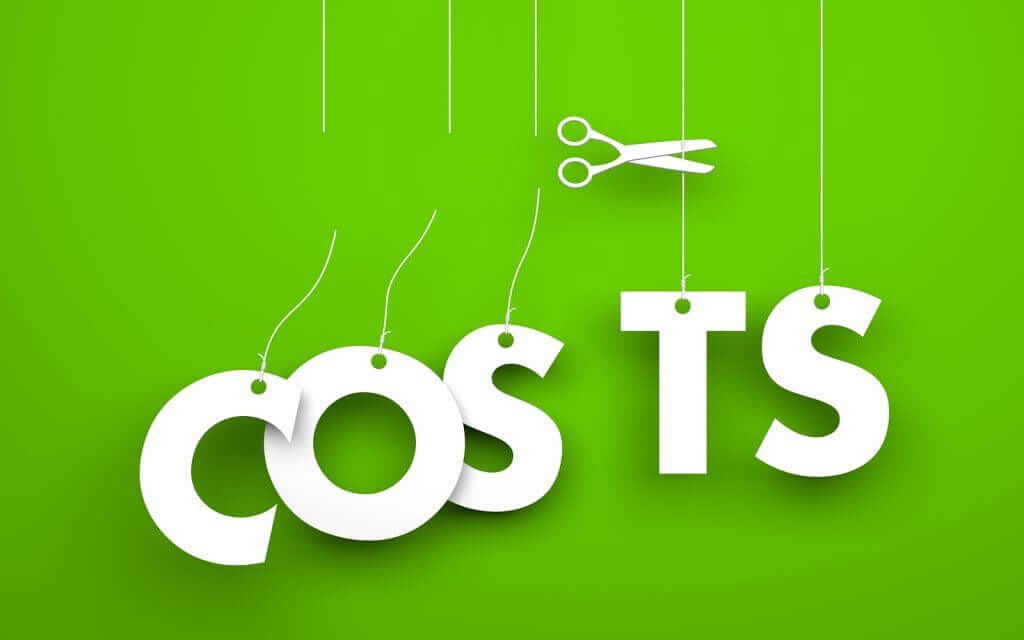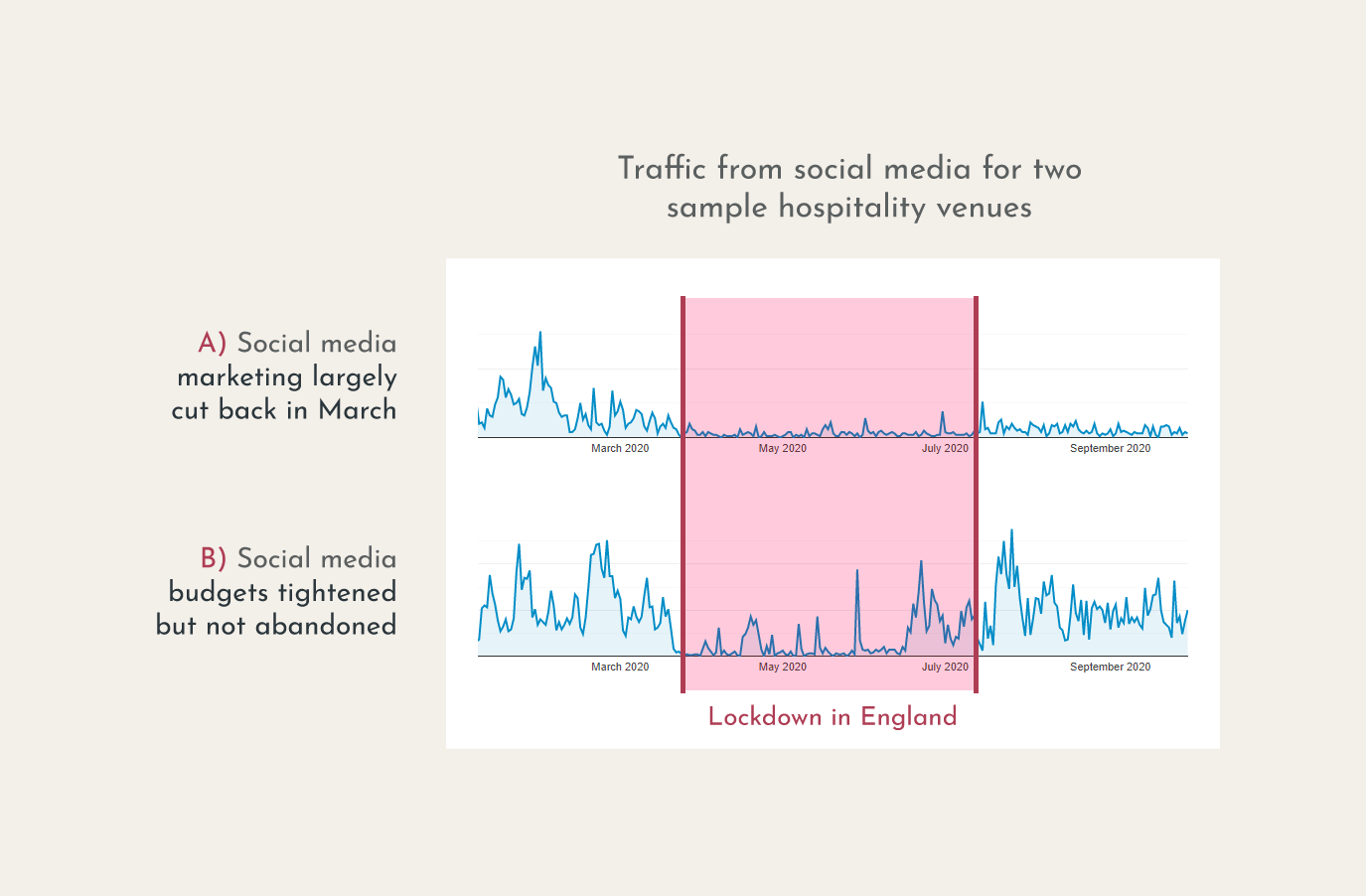
There’s no denying that 2020 has been an extremely rough year, with hospitality and tourism businesses being badly affected by restrictions to help reduce the spread of Coronavirus.
NB: This is an article from We Are Arise
While many hotels, chains, restaurants, pubs and tour operators have stayed positive and ploughed through this period and kept their marketing efforts alive, many have instead put their marketing on the backburner.
It is absolutely understandable that so many have had to manage budgets very carefully, but trimming your digital marketing budgets, or abandoning your digital channels entirely, may cost you much more in the long run compared to investing now.
Social media vs the lockdown
The graph below shows a prime example of the effect that the lockdown in England had on the website traffic generated by the social media accounts for two hospitality venues (note that data and identity has been anonymised).
Subscribe to our weekly newsletter and stay up to date
Lockdown caused a dramatic drop in traffic
The undeniable observation that both establishments share (and most others will have experienced) is the dramatic sheer drop in traffic as the lockdown began in late March 2020.
But maintaining investment resulted in a bounce-back
The big difference is what happens on the other side of the lockdown period when restrictions began to ease – one thrives, the other dives.
Establishment A, who scaled back social media marketing output drastically, saw traffic levels remaining low, barely bouncing back, while Establishment B reaped the fruits of maintaining their social media output, bouncing back pre-lockdown levels.

Note that in this case, website traffic referred from social media illustrates the point in hand clearly. But we use this metric as just one of the factors to measure good social media performance. If you’re not using website traffic as a KPI for your social media marketing you should start to.
That said, it’s not all about the traffic. While in normal times (remember those?) traffic is very important, it might not have been so important during lockdown. Like most things in 2020 though, the customer journey has changed and keeps on changing.
It’s not just social media, it goes for search too
Dr. Peter J. Meyers, a cognitive psychologist and resident Marketing Scientist at SEO authority Moz, recently published an article entitled “SEO Is Not an On/Off Switch”.
In the article, Dr Meyers presents the idea that whenever your organic search marketing efforts are stopped, you lose your progress, and when you restart you’re essentially having to rebuild the groundwork all over again.
Dr Meyers explains that “halting SEO altogether — even for a short time — is actually a bad idea, as it means more work for you and your business in the long run.” This is due to the effort and lag time involved rebuilding your search marketing, he goes on to say that you “have to go through this ramp-up again… it’s going to take time. There’s going to be a lag, and it could be weeks or it could be months.”
Use that knowledge to encourage a good comeback
1. Think long-term
Firstly, having a long-term perspective is vital. In marketing you can never just think about today, you need to be planning months ahead.
2. Don’t stop marketing
Abandoning your marketing in tough times is the worst thing you can do. Your marketing is more important than ever at the moment. You may have to creatively manage your resources, but don’t stop marketing.
3. Understand the new customer journey
Take time to constantly re-assess the customer journey as the situation changes. There will be times to present new offers, times to promote gift cards, times where you need to plant seeds of desire, and times where you simply need to offer reassurance or communicate critical information. Your digital marketing is the ideal conduit for all such messages.
4. Keep the spark alive
Continue to post content that sparks a desire in customers, keeping them on board until the time to book a stay, a meal or an experience comes around again. If you don’t keep your audience engaged you’ll lose their interest, and they may end up booking elsewhere when bookings re-open. Market for the future now.
5. Predict the lag and invest earlier
Establishment B in our graph saw a rise in traffic prior to restrictions being eased – demonstrating that anticipating changes and marketing early pays off. Dr Meyer’s thoughts on search engine optimization echo this, suggesting that you need to be aware of and cater for the lag time involved in rebuilding your marketing presence.
6. Be cost-effective
Marketing well is vital and budgets are precious, if your digital marketing is poor quality or isn’t targeted at the right audience, then you’re wasting time and resources.
It’s not over yet…
The effects of the Coronavirus pandemic aren’t over yet, and even when they are (a day which will come) it’s natural that you may still experience rough patches in life and business, but you can thrive through them.
Anticipate changes as best as you can and adapt your digital marketing strategy accordingly, but never abandon it.




